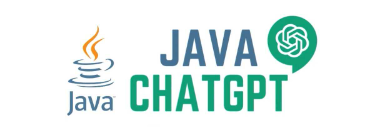Employees of only 3,604 start-ups are eligible for tax relief on ESOPs: Will Budget 2025 extend this relief to all start-ups, unlisted companies? However, this tax relief currently applies to employees of 3,604 start-ups in the country. There is a need to amend the current taxation rules so that more employees can be eligible for tax relief on ESOPs
Shalini Jain
Tax Partner, People Advisory Services, EY India
Employee Stock Option Plans ('ESOPs') have gained popularity in India, over the last decade, as a way to attract and retain talented professionals in many companies. Many successful Indian companies have used ESOPs as a strategic tool for wealth creation for their employees. Startups in India often use ESOPs to compensate for paying lower salaries compared to established companies. ESOPs serve as an incentive for employees to contribute to the growth of the company with the expectation of future financial rewards. As the company grows and becomes more successful, so does the value of the ESOP.Budget with ET
India's Rs 3 lakh crore cheque to be railways' game-changing modern ticket for you
How India could cement the foundation for a stronger housing market
Union Budget 2025's tax dilemma and expectations for Viksit Bharat
How ESOPs are taxed
The taxation of ESOPs in India has evolved over time. There are two key stages at which taxes are levied on ESOPs:(i) At the time of allotment of shares on exercise of option (Perquisite tax): When an employee exercises options and shares are allotted, the difference between the Fair Market Value (FMV) of the share on the date of exercise and the exercise price (price at which the employee buys the shares) is treated as a perquisite.
This perquisite is taxed as part of the employee's salary income under the head 'Income from salaries' at the applicable income tax slab rates. The employer is responsible for deducting the appropriate TDS (Tax Deducted at Source) on this perquisite value at the time of exercise.
(ii) At the time of sale (Capital gains tax): When the employee eventually sells the shares, capital gains tax is applicable on the difference between the sale price and the FMV on the date of exercise (which was considered for calculating the perquisite value).
In the absence of an active market to liquidate shares allotted in ESOPs, these companies have been asking for tax on ESOPs to be deferred until the actual sale of the shares, rather than at the time of exercise. This would alleviate the financial burden on employees who may not have the cash to pay taxes on notional gains leading to premature share sales or discouraging employees from exercising their options.
Current income tax rules for ESOPs in India
Recognized eligible startups in India got relief back in 2020. The income tax laws now allow a deferral of the perquisite tax payment on ESOPs. This deferral allows employees of eligible startups to pay tax at a later date as compared to the traditional taxation points (exercise date and sale date). For instance, the tax could be deferred to when the employee leaves the company, sells the shares, or after a certain number of years have passed since the exercise date, whichever is earlier.Will Budget 2025 change income tax rules to make ESOPs attractive for larger number of companies?
However, the above benefit of deferral of payment of tax is available only for employees of 'eligible start-ups'. At present, there are 158,743 start-ups recognized by the Department for Promotion of Industry and Internal Trade ('DPIIT'), but only 3,604 are eligible for the tax deferral .The current provisions in relation to taxation of ESOPs at the time of allotment/transfer of shares create hardship for employees of all unlisted companies (which offer ESOPs) as employees suffer cash outflow on account of payment of both the exercise price and tax on perquisite at the allotment stage without immediate monetization of gains. This hardship is further accentuated in the case of start-ups since a large part of the salary income of their employees is in the form of ESOPs.
ESOPs are important because they provide a win-win scenario for both employers and employees, fostering a culture of ownership, improving company performance, and offering significant financial benefits. However, the success of an ESOP depends, among other things, on a supportive ESOP taxation policy to ensure that it provides the intended benefit. If the benefit of deferral of payment of tax is extended to all unlisted companies, it would significantly help in making ESOP an attractive compensation proposition.
By implementing the above measures, the government can create a conducive environment for ESOPs, which can lead to increased employee engagement, retention, and participation in the growth and success of their companies. These measures can help make ESOPs a more favourable form of compensation for employees, aligning their interests with the company's growth and success.
(The article is written by Shalini Jain, Tax Partner, EY India. Vijayalakshmi, Director - tax, also contributed to the article.)
(Disclaimer: The opinions expressed in this column are that of the writer. The facts and opinions expressed here do not reflect the views of www.economictimes.com.)
This story originally appeared on: India Times - Author:Faqs of Insurances




























































